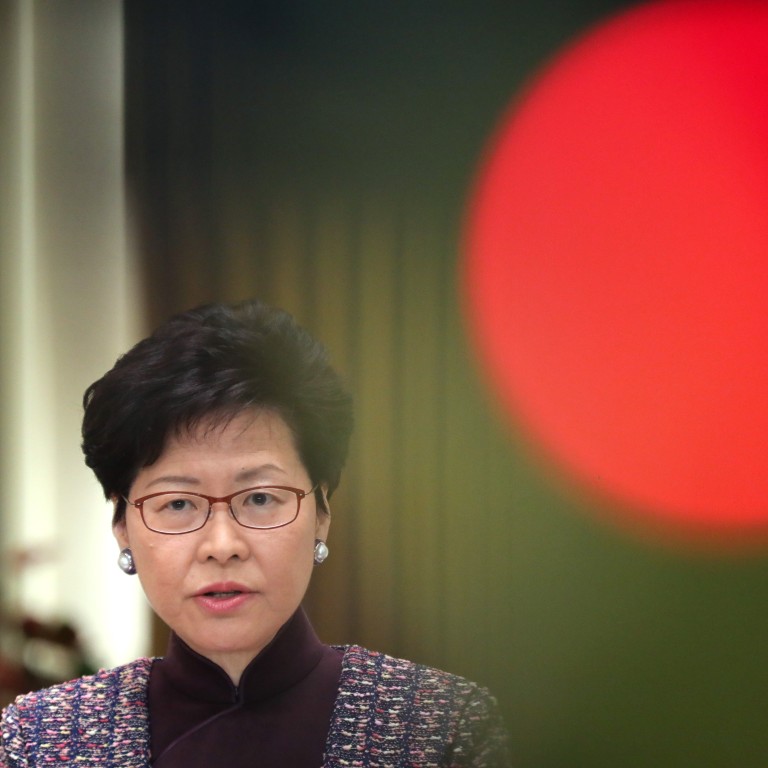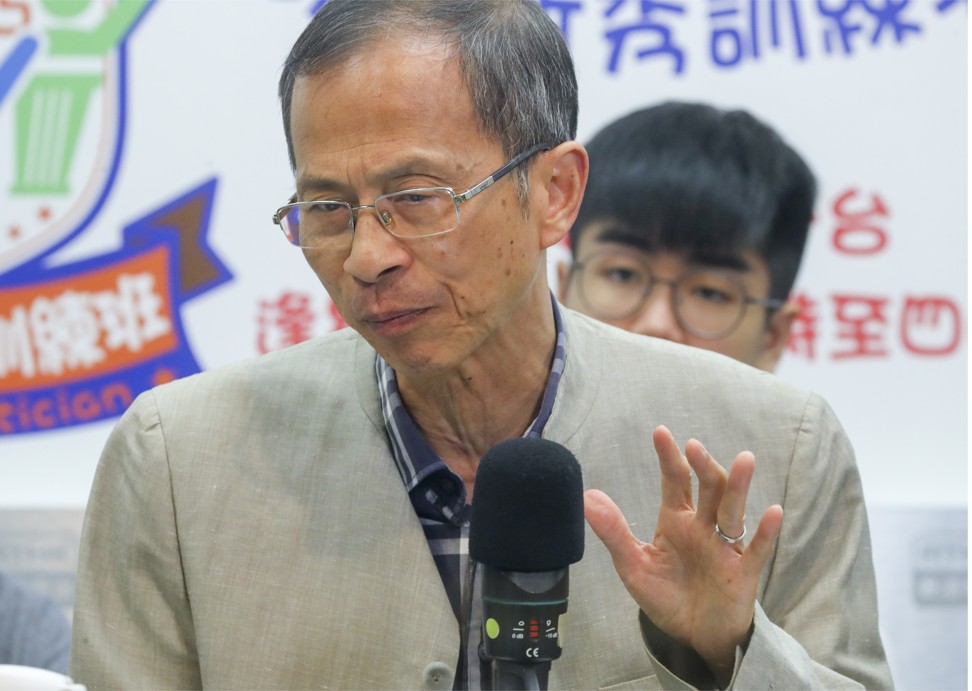
Don’t hold up extradition bill any longer, Hong Kong leader Carrie Lam and former Legco president Jasper Tsang urge opposition lawmakers
- Lawmakers set to resume voting process on April 30 to pick chairman of committee that will vet controversial bill
- Democrats filibustered at the first committee meeting and were expected to continue to do so
Lam and Jasper Tsang Yok-sing issued warnings as lawmakers were set to resume the voting process on April 30, before the Bills Committee could formally vet the government’s proposal to allow the transfer of fugitives to any place currently without a rendition arrangement, including mainland China, Taiwan and Macau.

“It was such a simple matter, but still it could not be completed within a two-hour meeting – that’s unheard of and we are very disappointed,” Lam said.
The chief executive, who shot down the pro-democracy camp’s counterproposal to set an expiry period on the extradition bill, conceded there was little her administration could do if the lawmakers remained uncooperative.
“I regret to say I may not have the political capability to rectify the situation, because some lawmakers are now asking me to step down,” she said, without naming the Democratic Party, which had strongly criticised her for pushing through the extradition bill.
I regret to say I may not have the political capability to rectify the situation, because some lawmakers are now asking me to step down
“It takes goodwill from both sides … but it has reached a point where there is little that can be done.”
Pan-dems want fugitive law to ensure Taiwan murder suspect faces justice
However, Claudia Mo Man-ching, convenor of the pro-democracy bloc, said officials had made life difficult for themselves by pressing on with the bill.
“Lam pointed her finger at us without doing anything that would improve the situation,” Mo said.
She also dismissed Lam’s criticism that they were biased against China, saying it was the legal system across the border that left the public worried.
James To also hit back at the chief executive.
“If Carrie Lam feels she is incapable of rectifying the situation, maybe it is time for her to step down and make way for someone else to do the job,” he said.
To could not guarantee the April 30 meeting would go smoothly and that a chairman would be picked.
“It’s not my job to guarantee anything … if there’s a reasonable inquiry from other lawmakers, I will have to deal with that,” he said.
Meanwhile, Tsang, the former Legco president, said it was hard to believe To was not delaying the committee meeting last Wednesday. “He told the press he was going to be fair and impartial in chairing the meeting, let’s hope that’s the case next time,” Tsang said on Saturday.
Following normal practice, To, Legco’s most senior lawmaker, presided over the committee meeting before a chairman was elected. He opened the floor for discussions on meeting arrangements, and threw out a pro-establishment lawmaker.
Fugitive law coming even if murder suspect has walked free, Lee says
While not calling for his removal, Tsang said it was debatable whether To had the same power as a committee chairman.
“That is still a grey area, what is his basis for exercising such power?” Tsang asked. “Before it is properly studied, I believe the most senior member should cautiously exercise his power – don’t use it if it can be avoided.”
The clock is ticking for the administration to push through the bill so it can extradite Chan Tong-kai, a Hongkonger accused of murdering his girlfriend in Taipei, to Taiwan.
The European Union, the US and Britain have all expressed concerns about the extradition bill, with Canada the latest to question the proposal.
“Ensuring the safety and security of Canadians at home and abroad is a top priority for the government of Canada,” a spokesman of the consulate in Hong Kong said on Saturday.
“Canada has raised serious questions with the Hong Kong government about the proposed amendments to their extradition laws.”
British Consul General Andrew Heyn said the speed of the legislative process, including a consultation which lasted less than a month before the bill was formally introduced to Legco, was a concern.
“[It] isn’t a position necessarily of opposition to the extradition [bill], and it wouldn’t really matter if we did oppose it,” Heyn told RTHK.
“The point about it is we’d like to know more and understand it better … we are concerned about the speed at which these proposals are being moved through.”

